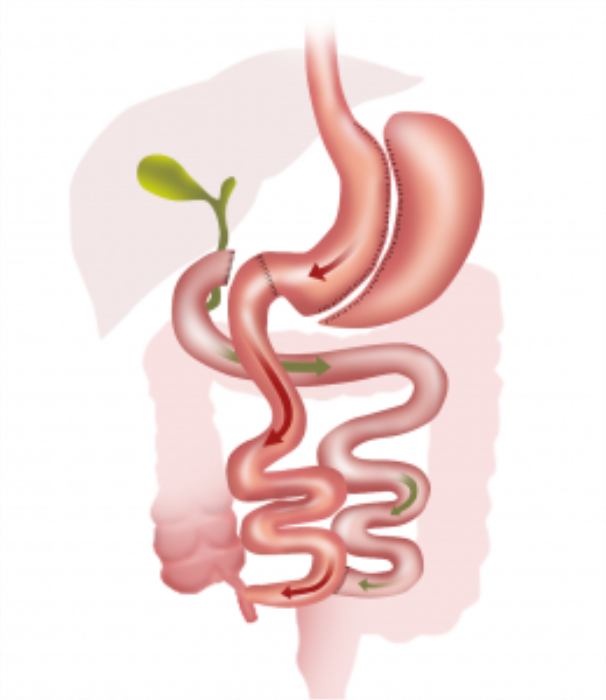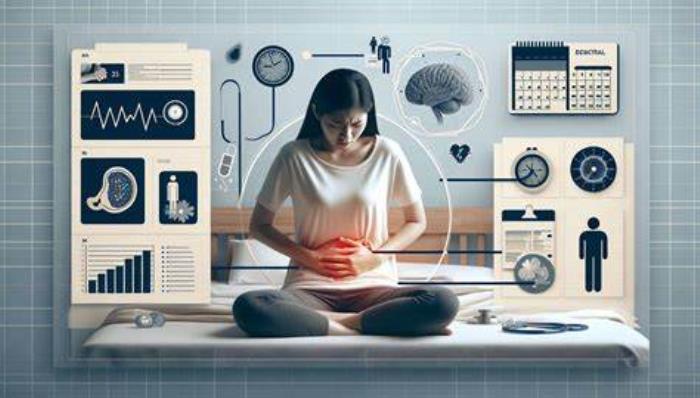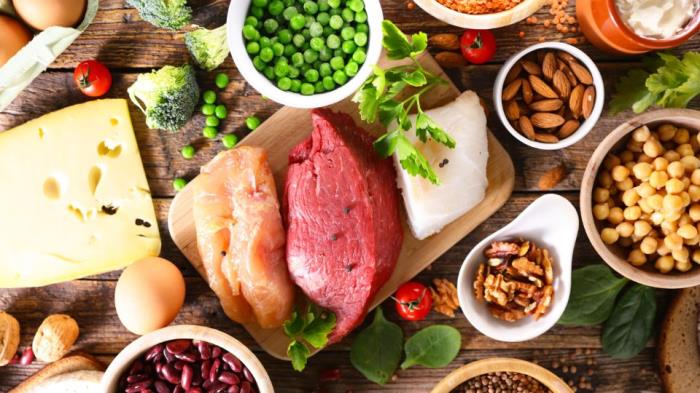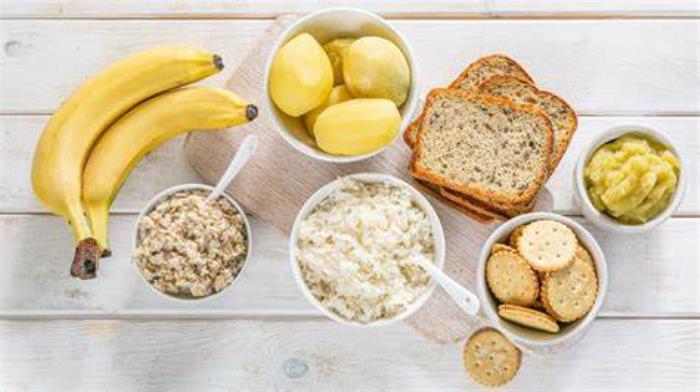Introduction: Understanding Digestive Changes Post-BPD/DS
Biliopancreatic Diversion with Duodenal Switch (BPD/DS) surgery is one of the most complex bariatric procedures, leading to significant weight loss through both restriction and malabsorption. However, the changes it induces in the digestive system require patients to adjust their eating habits and manage various gastrointestinal effects. Understanding these digestive changes is essential for preparing for life after surgery, as it helps patients better manage their health and avoid potential complications.
Overview of Biliopancreatic Diversion with Duodenal Switch (BPD/DS) Surgery
BPD/DS surgery involves two key steps: reducing the stomach's size by creating a small sleeve and rerouting a significant portion of the small intestine to limit the absorption of calories and nutrients. This combination of restriction and malabsorption helps patients achieve substantial weight loss while also improving metabolic conditions, such as Type 2 diabetes. BPD/DS is generally recommended for individuals with severe obesity, particularly those who have struggled with other weight loss methods.
How BPD/DS Affects the Digestive System
BPD/DS significantly alters the digestive process by both limiting food intake and reducing nutrient absorption. With a smaller stomach, patients are unable to consume large portions, and the bypassed portion of the small intestine decreases the absorption of fats and carbohydrates. This malabsorptive aspect can lead to rapid weight loss, but it also requires careful dietary management to prevent nutritional deficiencies. Additionally, BPD/DS affects the gut’s normal function, leading to changes in digestion speed, nutrient processing, and bowel movement regularity.

Common Digestive Issues After BPD/DS Surgery
After BPD/DS surgery, patients commonly experience digestive changes such as bloating, gas, and diarrhea due to the altered way their body processes food. The malabsorption of fats can cause frequent loose stools and an increased urgency to use the bathroom. Some patients may also experience discomfort after eating certain foods, particularly those high in fat or sugar, which can lead to dumping syndrome—a condition where food moves too quickly through the digestive tract. These digestive issues typically improve over time as the body adjusts, but they require ongoing dietary monitoring.
Managing Bowel Movements Post-Surgery: What to Expect
Managing bowel movements after BPD/DS surgery is a critical aspect of post-operative care. Patients may experience more frequent and looser stools due to reduced fat absorption, leading to a higher likelihood of bowel urgency. Incorporating a balanced, nutrient-dense diet with a focus on lean proteins, low-fat options, and fiber can help regulate bowel movements and reduce digestive discomfort.

Additionally, staying hydrated and working closely with a healthcare provider to address any persistent issues, such as vitamin deficiencies or severe diarrhea, is essential for maintaining digestive health and long-term success after surgery.
Adjusting to Changes in Nutrient Absorption
After Biliopancreatic Diversion with Duodenal Switch (BPD/DS) surgery, patients experience significant changes in how their bodies absorb nutrients. The surgical alterations result in reduced nutrient absorption, particularly of fats and certain vitamins. Understanding these changes and adjusting dietary habits is crucial to prevent nutritional deficiencies and ensure long-term health.
The Importance of a High-Protein, Low-Fat Diet After BPD/DS
A high-protein, low-fat diet is essential after BPD/DS to support healing and maintain muscle mass while minimizing fat intake, which can be more difficult to absorb post-surgery. Protein helps with tissue repair and supports weight loss, while lower fat intake reduces the risk of digestive discomfort and malabsorption issues.

Dealing with Malabsorption: Vitamins and Nutrients to Watch
Patients should be vigilant about monitoring their intake of key vitamins and minerals, especially fat-soluble vitamins (A, D, E, and K), calcium, iron, and vitamin B12. Regular blood tests can help identify deficiencies early, and supplementation may be necessary to maintain optimal health.
How to Prevent and Manage Diarrhea After BPD/DS
Diarrhea is a common concern after BPD/DS. To manage it, patients can incorporate soluble fiber-rich foods like oats and bananas, stay hydrated, and avoid high-sugar or greasy foods that can exacerbate symptoms. If diarrhea persists, consulting a healthcare provider is important for tailored advice.

Gas and Bloating: Tips for Reducing Discomfort
Gas and bloating can be uncomfortable after surgery. To minimize these symptoms, patients should eat slowly, chew food thoroughly, and avoid carbonated beverages. Keeping a food diary can help identify specific foods that trigger gas, allowing for better dietary choices.
Managing Dumping Syndrome After BPD/DS Surgery
Dumping syndrome occurs when food moves too quickly from the stomach to the intestines. Patients can manage this by avoiding high-sugar and high-fat foods, eating smaller meals, and including more complex carbohydrates and proteins in their diet.
Staying Hydrated: The Role of Fluids in Digestive Health
Hydration is vital for overall health and aids digestion. Patients should drink fluids throughout the day, aiming for at least 64 ounces, but avoid drinking during meals to prevent overfilling the stomach. This can help improve nutrient absorption and prevent dehydration.
Probiotics and Gut Health After BPD/DS Surgery
Probiotics can be beneficial for restoring gut health post-surgery. Incorporating probiotic-rich foods like yogurt or taking probiotic supplements can help manage digestive issues and improve the balance of gut bacteria.
Identifying and Managing Food Intolerances Post-Surgery
Some patients may develop food intolerances after BPD/DS. It's important to pay attention to how the body reacts to different foods and work with a healthcare professional to identify problematic items. Keeping a food journal can be helpful in this process.
How to Eat Smaller, More Frequent Meals for Better Digestion
Eating smaller, more frequent meals can aid in digestion and nutrient absorption. Patients should aim for 5-6 small meals throughout the day, focusing on protein-rich foods and nutrient-dense options while avoiding large meals that can lead to discomfort.
Working with a Nutritionist to Manage Digestive Changes
Collaborating with a registered dietitian or nutritionist specializing in post-bariatric care can provide tailored guidance. They can help develop a meal plan that accommodates individual needs and addresses any digestive changes.
Long-Term Digestive Health: What to Monitor After BPD/DS
Ongoing monitoring of digestive health is crucial for BPD/DS patients. Regular check-ups, blood tests for nutrient levels, and adjustments to diet or supplementation can help ensure long-term health and well-being.
Tips for Maintaining a Balanced Diet After BPD/DS Surgery
Focus on high-protein foods (lean meats, legumes, dairy), limit sugars and unhealthy fats, include a variety of fruits and vegetables, stay consistent with vitamin and mineral supplements, and plan meals ahead to ensure balanced nutrition.
Patient Experiences: Managing Digestive Changes After BPD/DS
Many patients share experiences of navigating digestive changes post-surgery. Peer support groups and sharing tips can be valuable for new patients as they adjust to their new dietary needs.
Conclusion: Adapting to Digestive Changes for Long-Term Success
Adjusting to the digestive changes after BPD/DS surgery is vital for achieving long-term weight loss and health. By understanding nutrient absorption, maintaining a balanced diet, and seeking professional guidance, patients can successfully navigate these changes and enhance their quality of life.
The Role of Behavioral Therapy in Biliopancreatic Diversion with Duodenal Switch Surgery Success
Understand the significant role of behavioral therapy in ensuring successful outcomes after Biliopancreatic Diversion with Duodenal Switch surgery. This section highlights how therapy can support emotional well-being, address food-related behaviors, and foster lifestyle changes necessary for long-term weight management.
How Biliopancreatic Diversion with Duodenal Switch Surgery Affects Diabetes Management
Discover how BPD/DS surgery can impact diabetes management. This section discusses the metabolic changes that occur after surgery, the potential for improved blood sugar control, and the importance of ongoing monitoring and dietary adjustments for diabetic patients.
Best BPD-DS Surgery in India
The Best BPD-DS Surgery in India offers an effective and comprehensive weight loss solution by combining stomach reduction with intestinal bypass, leading to significant long-term weight loss.
Best BPD-DS Hospitals in India
The Best BPD-DS Hospitals in India are equipped with state-of-the-art technology and expert medical teams, providing thorough pre-operative evaluations and continuous post-operative care for optimal results.
BPD-DS Surgery Cost in India
The BPD-DS Surgery Cost in India offers competitive pricing with transparent, affordable packages while ensuring high-quality treatment at leading hospitals across the country.
Best BPD-DS Surgeons in India
The Best BPD-DS Surgeons in India are experienced specialists in complex weight loss procedures, delivering personalized surgical care tailored to meet each patient's unique health needs and goals.
FAQ
What are the most common digestive changes after BPD/DS surgery?
Common changes include increased gas, bloating, diarrhea, and changes in appetite. Patients may also experience food intolerances and altered nutrient absorption.
How can I manage diarrhea after BPD/DS surgery?
Incorporating soluble fiber-rich foods, staying hydrated, and avoiding high-sugar or greasy foods can help manage diarrhea. If it persists, consult a healthcare provider.
What supplements do I need to take to prevent malnutrition post-surgery?
Patients often need to supplement with vitamins A, D, E, K, calcium, iron, and vitamin B12. Regular blood tests can help identify specific deficiencies.
How do I deal with gas and bloating after weight loss surgery?
Eating slowly, chewing food thoroughly, and avoiding carbonated beverages can help reduce gas and bloating. Keeping a food diary may help identify trigger foods.
What foods should I avoid to minimize digestive discomfort after BPD/DS?
Avoid high-sugar foods, greasy or fatty foods, and large meals. Pay attention to food intolerances and adjust the diet accordingly.